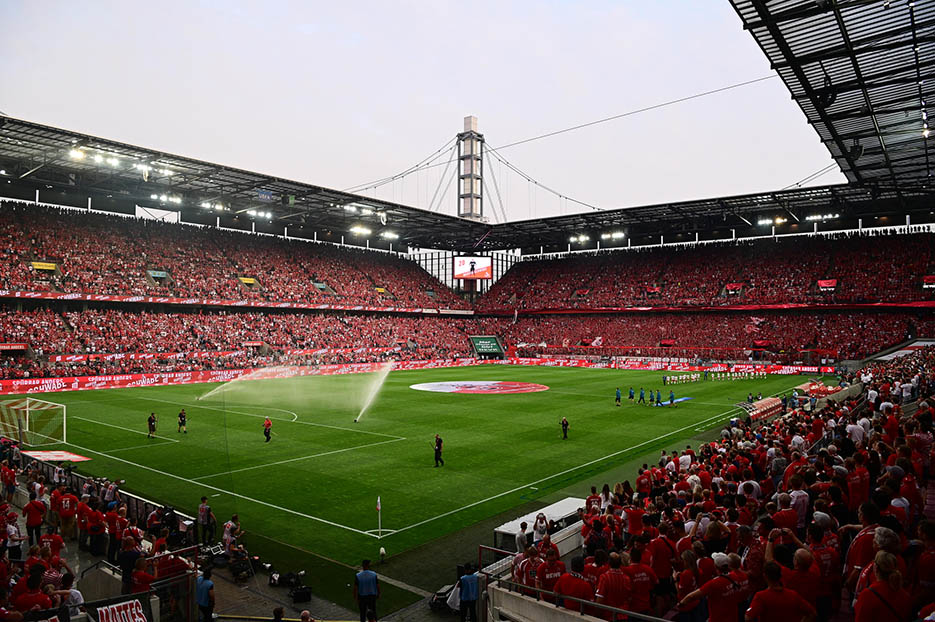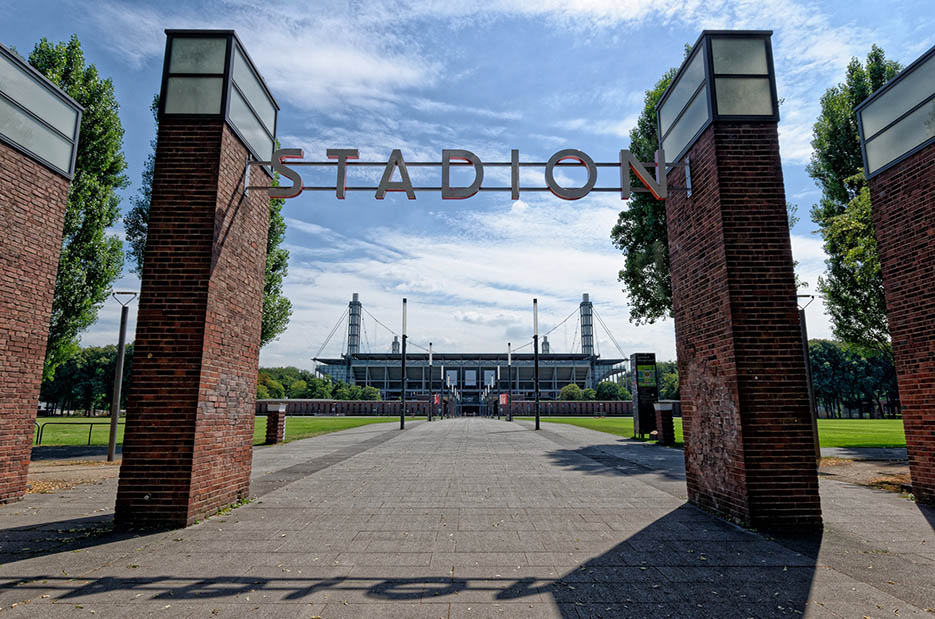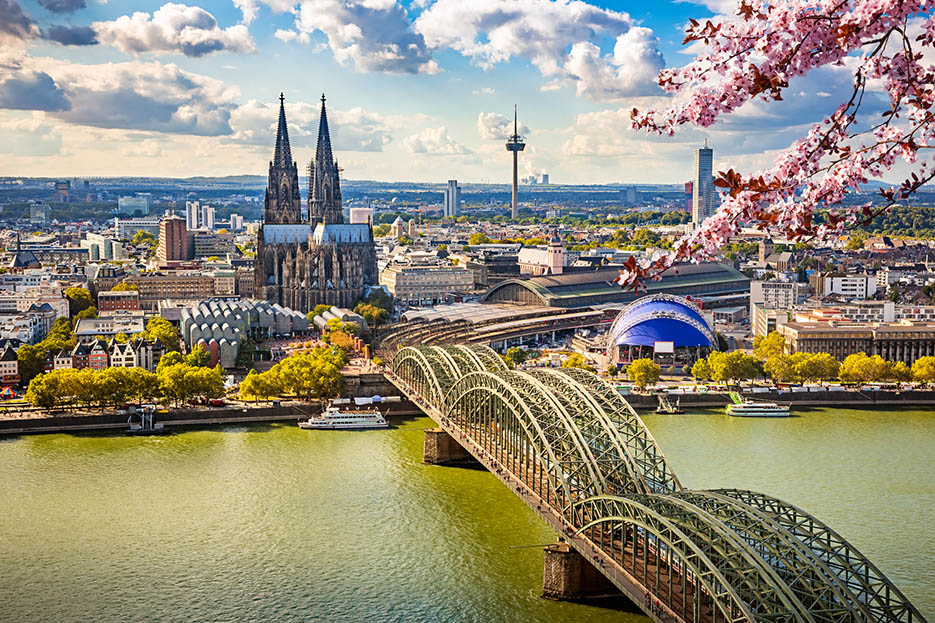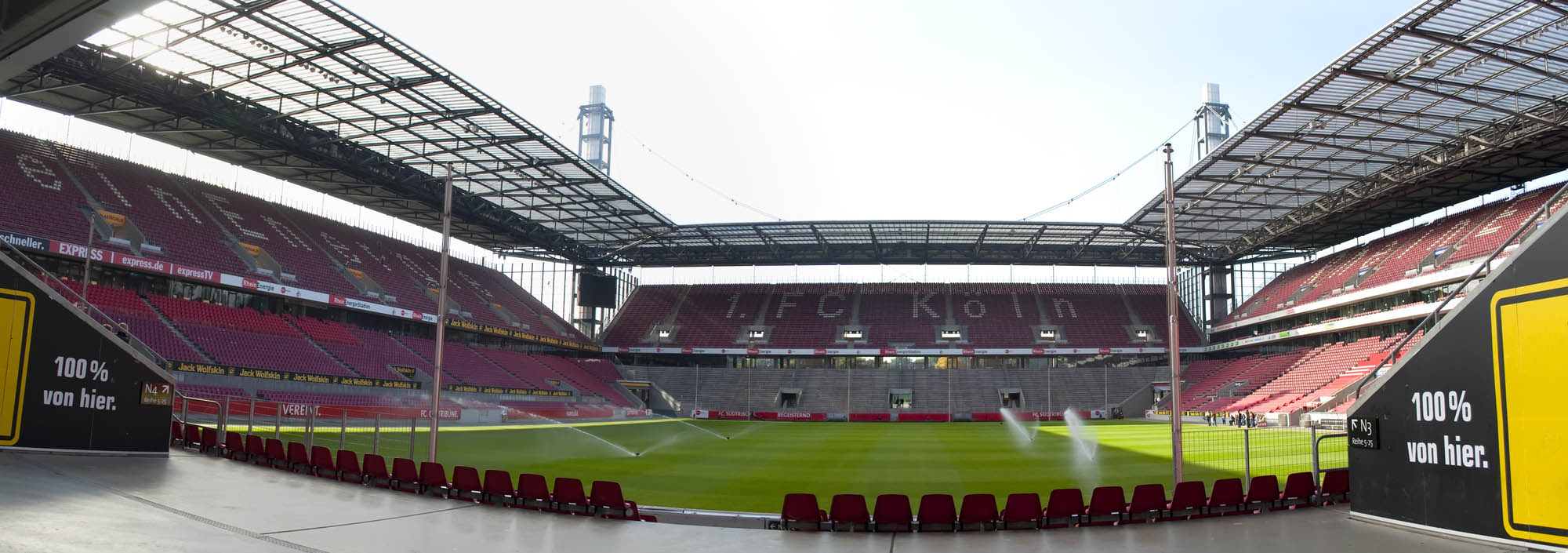Frankfurt Arena Complete Guide - Furnace Too Hot for the City
One of the Bundesliga’s most fiery stadiums will host the 2024 EURO matches - check out all you need to know in this Frankfurt Arena Complete Guide.


Their league might not be the best, but in 2024, it's easy to argue that Germany has THE best supporter culture in football. That's one of the main reasons why Euro 2024 in the country is getting the hype unmatched for the Old Continent's international competition. Of course, the venues of the clashes are going to be central to the whole experience, so we're presenting introductions to all the grounds of the 2024 Euros. With the Cologne Stadium complete guide coming here, mostly useful for the Scottish, English, and Swiss fans.
The historic and beyond-football Olympiastadion Berlin already got its own massive guide.
Within this Cologne Stadium complete guide, you’ll learn everything you need to know to have the best and most stress-free experience at the Euro 2024. From travel tips, sights to check out, history, how to access the ground, and interesting facts that will make the rare downtimes interesting as well.
Starting with who the information concerns the most.
Five matches of the EURO 2024 are to be played at the Cologne stadium. Four in group, and one in the first knockout round of the tournament.
Hungary vs Switzerland (Saturday, June 15th, 15:00) in Group A
Scotland vs Switzerland (Wednesday, June 19th, 21:00) in Group A
Belgium vs Romania (Saturday, June 22nd, 21:00) in Group E
England vs Slovenia (Tuesday, June 25th, 21:00) in Group C
Whoever tops group B will play in the first knockout round stage in this stadium. That is one of Spain, Croatia, Italy, and Albania, so only one bad guess here. Their opponent will be the 3rd best-placed team from the A, D, E, and F groups combined.
This match will be played on Sunday, June 30th, at 21:00 hours.
The Cologne Stadium, as the home of FC Cologne, is primarily known as RheinEnergieStadion. However, UEFA doesn't allow for the stadiums to hold sponsorship names during the tournament. Hence, for Euro 2024, RheinEnergieStadion is Cologne Stadium.
While its exterior looks rather industrial and fitting to the name of the energy company sponsoring it, the RheinEnergieStadion has an interesting history.
Notably, the area on which it stands used to be occupied by the fortifications of Cologne, which were to be removed by the Treaty of Versailles after World War I. Leaving the space for a sports centre.
The Mungersdorfer Stadion was built in the current place in 1923, with the name coming from the nearby neighbourhood. This is still the unofficial name the fans use for the grounds.
The Cologne stadium was renovated first for the 1974 World Cup in West Germany.
Then, in this century, also for the World Cup, the stadium was demolished partially and reconstructed for the 2006 WC in Germany. The reconstruction was done in stages so that the football club could continue using the ground for their official home matches. A 30-month construction period ensued and the total renovation project came at a total cost of €117,500,000.
However, the first match of the new stadium was a friendly played between Koln and Schalke in August of 2004, with Lukasz Podolski scoring the first goal ever.
Firstly, the Confederations Cup was played at the ground on the international stage.
Five World Cup matches were played on this ground in 2006, four in the groups, and one in the first knockout round. All of these matches had an attendance of 45,000.
However, now the capacity of the Cologne Stadium is 50,000 people for club matches (41,825 seated, 8,175 standing). Yes, there is still standing in Germany.
While that number is lower for international matches, holding 45,965 people!
However, for the European football championship, modifications of the upper tier are planned and this will increase the capacity to 49,827.
Most recently, the stadium was the host for the 2020 Europa League final that was played with no audience due to the pandemic, and Sevilla defeated Inter Milan 3:2.
The German national team played 29 games on this stadium, counting all of its iterations. While the last match happened in 2020 when the Swiss held onto a 3:3 draw in the Nations League.

Gerkan, Marg and Partner is the company behind the 2004 renovations. The stadium has two levels of terraces, with red seats predominant, and the white ones used to write the name of the club that plays on it, as well as the name of the company that sponsors it.
From the outside, the stadium does look a lot like a factory that's still being built. With a lot of straight poles exposed.
However, the four cornerstone towers do give the stadium a distinct and more enjoyable aesthetic feel, especially at night. This is great considering that four of the five matches of the Euros will be played in the evening.
The length of the stadium is 220 metres, its width is 180 metres, while the height to the roof alone is 33.25 metres.
The Cologne stadium is a versatile venue. It has hosted American football and ice hockey matches, as well as concerts by the likes of Pink, the Rolling Stones and Pink Floyd.

The city of Cologne is located in the western part of Germany, in the federal state of North Rhine-Westphalia. The city is just around 60 kilometres away from the Netherlands and Belgium borders. With the other bigger German cities in its vicinity being Dusseldorf, Bonn, Essen, and Dortmund.
Cologne is the fourth-most populous city in Germany with around 1.1 million inhabitants in the city proper.
As for the very entrance into Germany for the Euro 2024, people from European Union countries just need to carry their passport or national ID card. With the suggestion to carry the ID card with you at all times because one might need one in regards to proving identity for accommodation and tickets.
Visitors coming from non-EU countries, like the United Kingdom, need to meet Schengen Area entry requirements. Which are that the visitor's passport is issued within the last 10 years, and that the passport is to be valid for at least three months after the date the visitor intends to leave the EU.
Some fans may also require a visa to gain entry into Germany, like Turkish nationals. Visit Germany’s Federal Foreign Office website holds the entire list and can be used to apply for one.
The Cologne Bonn Airport is located in the southeast of Cologne. More than 13 kilometres from the city centre, and nearly 19 kilometres from the Cologne Stadium, as the crow flies.
The main train station is located very near to the Cologne Cathedral, in the centre of the city. The Cologne Central Station provides high-speed connections to Paris, Brussels, Amsterdam, Basel, and Vienna, along with direct connections to all other EURO 2024 host cities.
Cologne is notably split down the middle by the meandering Rhine River. And the Cologne stadium is found nearly perfectly west of the city centre. Around six kilometres from the city's main landmark and tourist attraction - the Cologne Cathedral.
The long and straight boulevard - Aachener Street - on which the stadium lies goes all the way to the inner part of the city. On the other end, it connects pretty quickly to the A4 highway. Additionally, the city is also connected with the A1 and A3 highways.
While the city centre is typically European, suitable for walking and cycling, reaching the stadium would require a means of transportation for all but the most passionate walkers.
Cologne Stadium's address is: Aachener Straße 999, 50933 Köln. Or Aachener Street, Cologne, in English.
Similar to the Olympiastadion Berlin, the Cologne Stadium is located in a very green part of the city. Within a larger sports park, and adjacent to a forested park called Stadtwald. The wooded park also includes an animal petting zoo and a lake, so it’s worth checking out. Especially if you’re visiting the Euros with kids.
The tram line 1 connects the CologneStadium with the city centre, going from the easternmost part of the city to the westernmost in a straight line.
The station near the stadium is called after the official name of the station - RheinEnergieStadion station.
Match ticket holders are entitled to a 36 Hour Travel Pass for the entire regional VRS (Verkehrsverbund Rhein-Sieg) and the regional VRR (Verkehrsverbund Rhein-Ruhr) networks at no additional cost. The pass is valid from 06:00 on matchday until 18:00 the following day.
Most U-bahn, or S-bahn (metro and light rail) services run until 01:00 at night, but some continue throughout the night. With this schedule probably increasing at the time of the tournament.
The Cologne Stadium has several different parking spots for visitors coming via cars. Some are located on Aachner Street, others in the Walter-Binder-Weg a bit to the north, and an additional one to the south side of the stadium on the Junkersdorfer street.
Taxis in Cologne are marked by the "taxi" sign on the roof and the licence number on the right of the rear window. Taxis must accept all journey requests within the city.
You can order a cab via the Taxi.eu app, by phone (0221 2882) or by hailing a passing taxi from the roadside.
The city also has e-scooters as a means of transportation, although you must check whether your destination has the appropriate parking.
Throughout the entire tournament, the city of Cologne will provide a free passenger ferry service between the old town and Cologne Deutz, which is on the right, eastern side of the city, across the Rhine River.
Other notable sights in the city are also mostly religion-based, such as Saint Gereon's Basilica, the Great St. Martin Church, and the Cologne Central Mosque.
Cologne's other sights are the Chocolate Museum on the river and the name-says-it-all IceBar. And of course, it's Germany, so brewhouse tours are available.
But considering this is a sports guide, we have to single out the German Sport & Olympic Museum and the Michael Schumacher Private Collection. The former is on the riverbank in the city centre, while the Formula 1 enthusiasts will have to go a bit further north in the city.
Most hotels and hotels are located in the inner city centre. Considering that's where the fanzone will be, that might be the best option for most visitors.
Around the very Cologne Stadium, there aren't options available for hotels or hostels. But considering the whole city is well connected with public transport, it will be easy to get to the stadium.
Prices from hostels start from €90 per night, hotels at €145 per night, rental apartments from €180 per night, and luxury hotels at €305 per night.
As the Cologne Stadium is a bit outside of the city centre, the options for food and drink aren't abundant in its vicinity. That is, during regular days. For the EURO 2024, we can expect a lot of fast food offers all along the city.
However, if you want something a bit more concrete, it's worth noting that there are restaurants in Aachener street on the way to the stadium. So hoping off a couple of stations before the RheinEnergieStadion one, might be a good idea.
Additionally, there are Italian restaurants in the northeastern part of the nearby Junkersdorf neighbourhood. In the Kirchweg street.

As for any event organised by FIFA or UEFA, there will be a fan zone in the city of Cologne. For the EURO 2024, the fan zone will be located in the Heumarkt town square, located in the city centre. Just 150 metres away from the Rhine River.
The fan zone is free for entry, no ticket required, and will be open from 14th June to 14th July. It will boast football activities, DJ sets and entertainment programs, food and drinks, and of course, a screen to watch the football.
Cologne will also provide a live-viewing venue at the Tanzbrunnen park on the right riverbank of the Rhine.
The matches played here will be all Germany games, all the games played at the Cologne stadium. While other matches might be played here too, to be determined at a later date.
Make sure you bookmark this Cologne Stadium complete guide for when the action starts!

One of the Bundesliga’s most fiery stadiums will host the 2024 EURO matches - check out all you need to know in this Frankfurt Arena Complete Guide.
The Stuttgart Arena complete guide will maximize your enjoyment for the upcoming Euro 2024, and prepare you with all the interesting and important tidbits.
Arena AufSchalke complete guide will inform you about all you need to know in order to have a fulfilling EURO 2024 experience in Gelsenkirchen.
The Leipzig Stadium guide will get you up to speed with everything you need to know for the Euros 2024. But also for visiting the Red Bull Arena otherwise.
BVB Stadion Dortmund complete guide will have you geared up and completely ready for the ultimate EURO 2024 experience in one of Germany's best football cities.